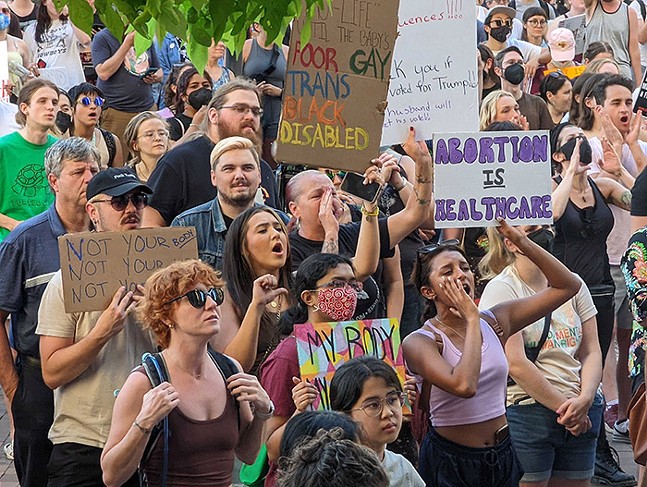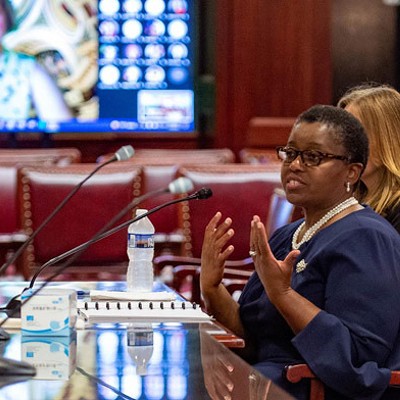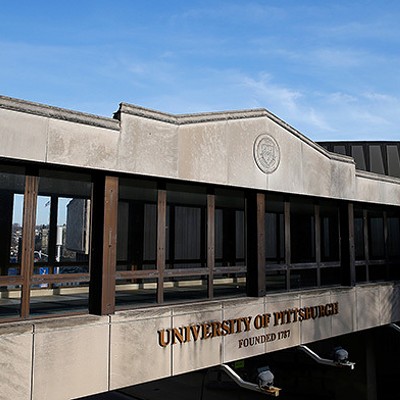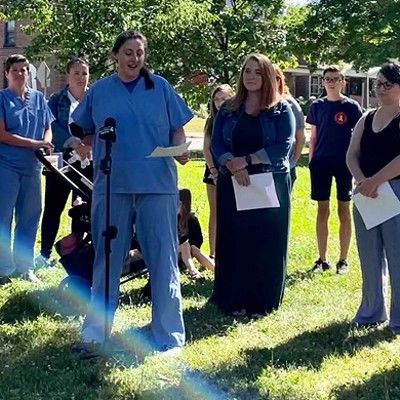
Hours after the U.S. Supreme Court overturned once-secure federal abortion rights, a swarm of demonstrators gathered on the steps of the City-County Building, holding up rush hour traffic as they spilled onto the surrounding streets.
Standing atop the portico on that hot June evening, Pittsburgh Mayor Ed Gainey vowed to fight alongside them.
“Pittsburgh is for you,” Gainey said. “If you want to get an abortion, come to the City of Pittsburgh.”
Within days, state, county and city lawmakers prepared new bills seeking to shore up abortion protections in their respective jurisdictions.
By mid-summer, local abortion care providers reported a sharp rise in demand as trigger laws in neighboring states sent anxious patients into Pennsylvania, where the right to an abortion 24 weeks into a pregnancy remains intact.
But the June 24 Dobbs vs. Jackson Women’s Health Organization ruling has left this right vulnerable, and efforts by some Pennsylvania Republicans to squash it could hinge on decisions made by voters on Nov. 8.
Standing in the way of their efforts is term-limited Democratic Gov. Tom Wolf, who can veto any anti-abortion laws, confident his opponents will fall short of the two-thirds majority needed to overrule him.
But this could change in January, because state Sen. Doug Mastriano (R-Franklin) is one of two major party nominees seeking to succeed Wolf.
Mastriano, a retired army colonel, referred to abortion as a “number one issue” during a Republican primary debate earlier this year where he also called for a total ban on the procedure with no exceptions.
One of Mastriano’s first moves after his 2019 election was to introduce a bill outlawing abortions once a heartbeat can be detected. When the bill died he reintroduced it during the following session, and has vowed to keep pursuing it if elected governor.
Mastriano’s opponent, Democrat Josh Shapiro, has meanwhile committed to following Wolf’s hard line of opposition.
“Our Democratic Governor’s veto pen is the only thing standing between us and an extreme, Texas-style abortion ban in Pennsylvania,” Shapiro tweeted shortly before the release of the anticipated Dobbs ruling.
Shapiro has maintained a double-digit lead in polling conducted since September.
Pennsylvania House and Senate candidates are also fitting their stances on abortion into their campaign platforms.
All four Republican nominees for the General Assembly charted in this election guide have positioned themselves as anti-abortion candidates, with some supporting exceptions for parental health, rape and incest. Alongside Mastriano’s tabled Heartbeat bill, Republican lawmakers are pushing a constitutional amendment that would ensure the state has “no constitutional right to taxpayer-funded abortion or other right relating to abortion.”
But for Republicans, the longtime rallying cry against abortion has become a double-edged sword.
At the national level, many Republican leaders who formerly championed the anti-abortion cause suddenly grew quiet as Dobbs prompted a torrent of Democratic fundraising and a string of polls showing the GOP’s anticipated mid-term resurgence under threat.
In Pennsylvania, Republican politicians have likewise walked back some of their anti-abortion rhetoric in the wake of Dobbs. Before the ruling, Cindy Kirk, an Allegheny County Republican seeking to represent state House District 30, pledged on her website simply to “support the unborn right to life.” But she has since replaced the text with a softer message, stating, “I believe abortions should be safe and rare.”
Other GOP candidates have similarly softened their stances. Even Mastriano stopped emphasizing the issue after winning the primary.
A Franklin and Marshall College poll found public support for abortion among Pennsylvanians had reached an all time high this summer, with 89% believing it should be permitted in all or some cases.
As eyes nationwide have locked on Pennsylvania’s tight U.S. Senate race, GOP nominee Mehmet Oz has sought to carve a new image from the Trump-endorsed firebrand who triumphed over establishment pick David McCormick in the primary.
In May, Oz said “If you think that the moment of conception you’ve got a life, then why would you even wait six weeks? Right, then an in vitro fertilized egg is still a life.”
But in a recent press event in Pittsburgh, the former heart surgeon said he believes abortion law should be set at the state level while modestly identifying as “pro-life.”
Oz’s opponent, John Fetterman, the Braddock-hailing lieutenant governor, has consistently supported abortion rights.
Polling shows Oz has narrowed a ten-point deficit to place himself within striking range of Fetterman, whose campaign has suffered from negative ad campaigns focusing on his recent stroke and his views on criminal justice.
While certainly not the only issue voters are carrying into the polls this year, the altered legal landscape means abortion as an issue weighs in far higher than previous years. Pennsylvania’s unique political makeup, its proximity to states where abortion is largely banned, and its potential to shift the balance in the U.S. Senate only add to this.
But voters are also worrying about inflation, crime, election integrity, guns, education and more. In the following guide, we help put these issues into focus for the races in which you get a say.


















